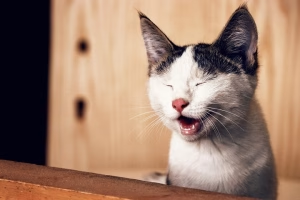As loving pet owners, we often wonder what our furry companions are feeling—especially when something seems off. One common question that arises is: do cats get headaches? While cats can’t tell us directly, growing research and veterinary observations suggest that yes, cats likely do experience headaches.
Understanding how cats express pain, what might cause a headache in felines, and how to help them can make a big difference in their quality of life. This detailed guide explains the signs, causes, and ways to care for a cat that may be experiencing head pain.
Can Cats Actually Experience Headaches?

Although cats can’t talk, their nervous systems are similar in many ways to humans. The pain receptors in a cat’s head and brain are nearly identical to ours. This means that under the right (or wrong) conditions, a cat is very likely capable of experiencing a headache.
Veterinarians believe that many health conditions in cats—such as eye infections, high blood pressure, or dental issues—could cause symptoms comparable to headaches in humans.
However, because cats are experts at hiding pain (a survival instinct inherited from their wild ancestors), headaches can go unnoticed unless you’re closely watching their behavior.
What Might Cause Headaches in Cats?
Just like in people, headaches in cats can be triggered by a range of physical and environmental factors. Some of the most common include:
High Blood Pressure
Feline hypertension is common, especially in older cats or those with kidney disease or hyperthyroidism. Elevated blood pressure can affect the eyes, brain, and heart—leading to symptoms like disorientation, vision loss, and likely headaches.
Dental Problems
Tooth decay, gum infections, or jaw pain can lead to pressure and inflammation in the head, which may contribute to headache-like discomfort.
Eye Conditions
Eye infections, glaucoma, or injury can cause intense pressure in the head region. Squinting, tearing, or pawing at the face may indicate discomfort that could be similar to a headache.
Sinus Infections
Inflamed sinuses from infections or allergies can produce pressure in the head. Though less common in cats, it can still happen—especially in flat-faced breeds like Persians.
Brain Tumors or Neurological Disorders
Though rare, brain tumors or neurological issues can cause ongoing head pain. In these cases, cats might also exhibit seizures, balance problems, or personality changes.
Trauma
If your cat recently fell, hit its head, or was involved in an accident, pain or internal injury could result in symptoms that resemble a headache.
Environmental Stressors
Bright lights, loud noises, strong smells, and extreme heat could irritate a sensitive cat. While it’s harder to link these directly to headaches, they can certainly cause stress or tension.
Signs Your Cat Might Have a Headache
Because cats can’t tell you when their head hurts, it’s important to look for changes in behavior or subtle signs of discomfort. While none of these symptoms guarantee your cat has a headache, they can be strong indicators of head-related pain.
Common Signs to Watch:
- Squinting or avoiding light (photosensitivity)
- Lethargy or reduced activity
- Hiding or avoiding contact
- Pawing at the face or head
- Excessive grooming of the head area
- Loss of appetite
- Twitching or flicking ears
- Growling or hissing when touched on the head
- Vocalizing more than usual or unusual meowing
- Tilting the head or unsteady walking
If your cat displays several of these symptoms, it’s a good idea to consult a veterinarian for a proper diagnosis.
How Are Headaches in Cats Diagnosed?
There is no direct test for diagnosing headaches in cats. Instead, veterinarians rely on physical exams, observation, and diagnostic tools like:
- Blood pressure measurements
- Eye exams
- Dental inspections
- Blood tests for underlying disease
- Imaging like X-rays or MRIs (for neurological issues)
The goal is to identify the source of discomfort or pain and determine whether it could be causing headache-like symptoms.
Can You Give Cats Human Headache Medicine?

Absolutely not. Human painkillers like ibuprofen, aspirin, or acetaminophen are toxic to cats and can cause severe illness or even death. Never attempt to treat a cat’s pain with over-the-counter human medications.
Always speak to a veterinarian before giving your cat any type of medication. If treatment is needed, your vet can prescribe feline-safe pain relievers or anti-inflammatories in appropriate doses.
How to Help a Cat That Might Have a Headache
While professional veterinary care is always the best course of action, there are some steps you can take at home to make your cat more comfortable if they appear to be in pain.
Create a Calm Environment
- Dim the lights
- Reduce household noise
- Keep other pets and children away temporarily
- Provide a quiet, comfortable space with soft bedding
Monitor Eating and Drinking
Ensure your cat is still eating and drinking. Loss of appetite can worsen dehydration and make discomfort worse. If your cat refuses food or water for more than a day, contact your vet.
Limit Handling
If your cat is sensitive to touch, don’t force cuddles or petting. Allow them space and interact gently when needed.
Use a Warm Compress
If your cat allows it, gently applying a warm (not hot) cloth to the side of the head may offer relief, especially for muscle tension. Always avoid direct contact with the eyes or ears.
When to Visit the Vet
You should schedule a vet visit if your cat:
- Shows signs of head discomfort for more than 24 hours
- Is squinting, drooling, or has a tilted head
- Refuses to eat or drink
- Becomes unusually aggressive or withdrawn
- Shows neurological signs like seizures or imbalance
Early intervention can prevent minor issues from becoming serious problems. A vet can diagnose the root cause of discomfort and provide safe, effective relief.
Preventing Headaches and Discomfort in Cats
While you can’t prevent all causes of head pain, regular wellness checks and home care can go a long way in keeping your cat comfortable.
- Schedule yearly vet visits (twice yearly for senior cats)
- Keep up with dental hygiene and cleanings
- Monitor blood pressure in older cats
- Feed a balanced, vet-approved diet
- Keep their environment calm and stress-free
- Address infections or allergies promptly
Cats age differently than humans and are experts at hiding pain, so staying proactive is key.
FAQs About Cats and Headaches
Can cats really get headaches?
Yes, veterinary professionals believe cats can experience headaches, especially in relation to certain health issues like high blood pressure, dental pain, or eye problems.
How do I know if my cat has a headache?
Look for signs like squinting, hiding, pawing at the face, or changes in behavior. If these symptoms persist, consult a veterinarian.
What can I give my cat for a headache?
Never give human pain medications. Only administer what your vet prescribes specifically for your cat.
Are headaches common in cats?
They are likely underdiagnosed due to cats hiding their pain. They may be more common in older cats or those with underlying health issues.
Can stress give my cat a headache?
While not proven, stress may contribute to physical tension or trigger underlying conditions that cause discomfort. A calm environment is always helpful.




